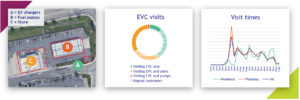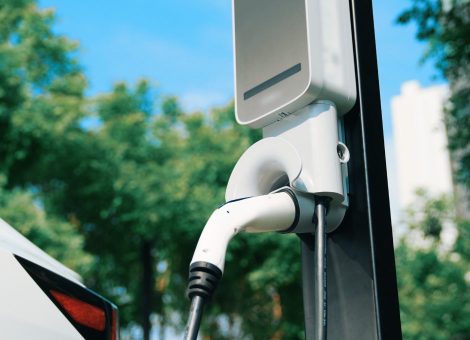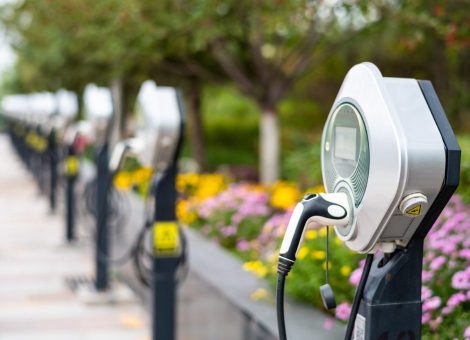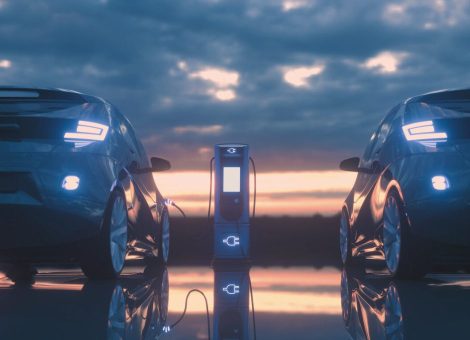EV charging: Conversion in-store and the business case
One of the biggest challenges retailers face when determining the electric vehicle (EV) strategy is being able to define the business case. Given the relative lower number of EVs on the road, charging events alone will not drive the business case. In fact, if only these charger utilization rates are considered, the ROI could span many years.
The business case is driven by the impact on the ancillary offering available at the location. This opens up another challenge: how do we determine the right offer and experience to meet the needs of this customer set, and how do we make sure this adapts over time as EV usages grows and the consumer profile evolves?
The key questions that need to be asked are:
- Are EVC visitors coming into the store?
- What is the profile of this visitor?
- Where do they live and work?
The information required to answer these questions may not always be easy to obtain, especially when the transaction at the chargers and the retail store are often independently managed. This separation means those managing the pricing and supply of the ancillary offers may not always have control over the pricing of the charger, making the promotion of cross-shop loyalty difficult.
At Kalibrate we equip our customers with the data, software, and analytics to enable them to understand the EVC to store conversion as well as the journeys EV drivers take, the behaviors that define them, and how these will evolve over time.
Are EVC visitors coming into the store?
Firstly, you need to establish the impact of implementing EVCs on your retail offer so you can understand where on your site consumers go, when they visit (by time of day and day of week), and whether they come back. Once you have this information you can determine the ROI from the charger, considering the potential additional spend in-store, generally with higher margins. Understanding this conversion from EVC to store will help drive the business case.

What is the profile of the EVC visitor?
It’s crucial that you understand the profile of your EV consumer to help determine the right offer and experience. As we move through the stages of adoption, the profile of the EV consumer will change, which means what they like to eat, buy, and do while they wait for a charge, will also change. Once you can access this insight, you can ensure that your offer aligns with your customer’s needs to maximize the in-store spend. Businesses that achieve this will deliver the best return on their investment in EV chargers.
Where do EVC visitors live and work?
Do you know where EV drivers are in relation to your location so you can determine your trade area, and how far the EVC visitor is travelling, and whether they’re local or transient? Each will have different needs, even with the same customer profile. This insight allows you to ensure you are targeting them with the right offers in-store. Additionally, you will be able to establish what your trade area is and who your competition is, to create the optimum strategy based on the threats and opportunities in your market.
Moving forward
The business case for EV is complex but starting with the customer is key. Retailers who invest in the insight to understand who uses their charging facilities and builds a compelling offering to maximize the value of that relationship are best placed to succeed. EV offers not only additional revenue streams, but also the potential to create deeper loyalty with more customers as adoption gathers pace.
Read more articles about:
Electric VehiclesSubscribe and get the latest updates
You may unsubscribe from our mailing list at any time. To understand how and why we process your data, please see our Privacy & Cookies Policy
Related posts
Electric Vehicles
Kalibrate launches EV Pricing solution to transform electric vehicle charging operations
Launching Kalibrate EV Pricing - the intelligent EV pricing software for strategic CPOs

Electric Vehicles
The EV charger pricing challenge
As electric vehicles (EVs) become more prevalent, the task of managing EV charger pricing presents unique challenges...


